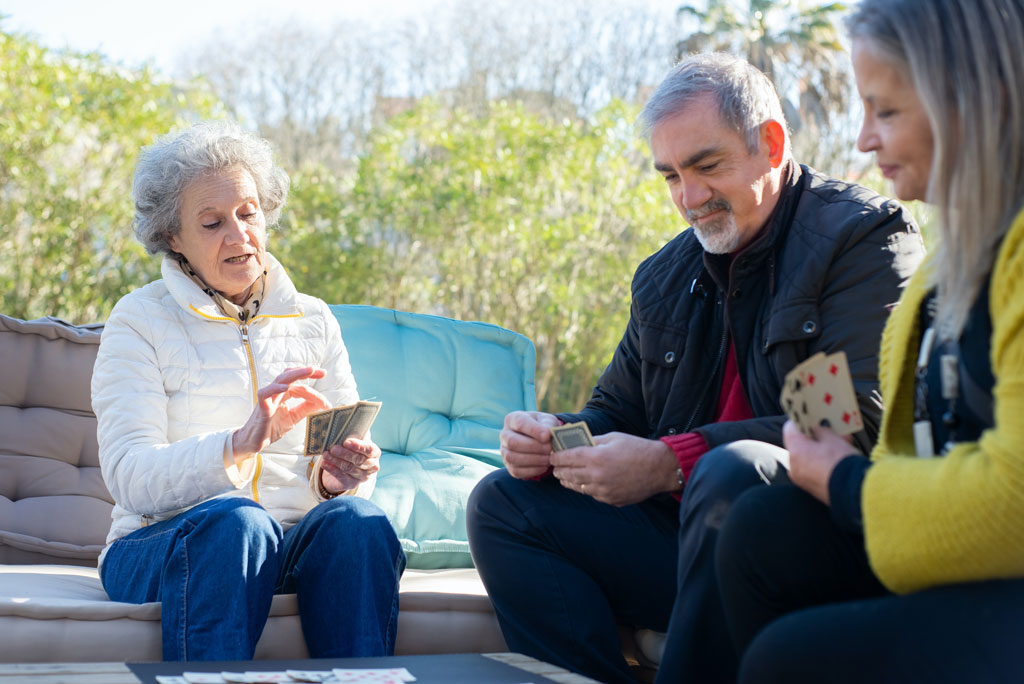What is Cognitive Aging?
Cognitive aging is a natural process that can have both positive and negative effects, which may vary widely from person to person.
Cognitive aging refers to changes in the ability to think, learn and remember that occur as individuals age. It is a natural process that can have both positive and negative effects, which may vary widely from person to person. Brains age at different rates and in different ways. While wisdom, experience and knowledge increase with age, other abilities like processing speed (the time it takes to perform mental tasks), decision-making and some types of memory may decline with age.
Cognitive aging is not a disease. The brain changes associated with aging are part of a natural process that starts at birth and continues throughout the lifespan. While cognitive aging cannot be prevented, it is important to note, not everyone will experience cognitive changes as they age and there are steps everyone can proactively take to optimize their brain and cognitive health.
What is Cognitive Health?
Cognitive health is the ability to clearly think, learn and remember.
Cognitive health is a marker of overall brain health and is essential for maintaining independence and wellbeing as people age. A growing body of scientific research suggests the factors below promote cognitive health in old age. Helping your patients adopt these recommendations may go along way toward helping them function better as they age.
Tips for Maintaining Cognitive Health
Maintain physical health
- Make sure patients get the health screenings recommended for their age.
- Talk with patients about the medicines they take and discuss the possible side effects they may have on memory, sleep and brain function.
- Encourage limited use of alcohol.
- If patients smoke, urge them to quit smoking and to avoid other nicotine products.
- Encourage patients to get enough sleep – aiming for 7-8 hours.
Manage high blood pressure and other vascular conditions
Preventing or controlling high blood pressure may help the brain in addition to helping the heart. Observational studies have shown having high blood pressure in midlife – from your 40’s to early 60’s – increases the risk of cognitive decline later in life.
- Help patients manage any other chronic health problems they may have, like diabetes, high blood pressure and high cholesterol.
Eat healthy foods
Encourage patients to eat a healthy diet consisting of a variety of fruits and vegetables, whole grains, lean meats, fish, poultry, and low-fat or nonfat dairy products. A healthy diet can reduce the risk of many chronic diseases and promote brain health.
- Limit the amount of solid fats, sugar and salt in your patients’ diets.
- Focus on portion size control; obesity is associated with cognitive decline in old age.
- Make sure patients know to stay hydrated by drinking plenty of water – around 2L per day.
Engage in physical activity
Physical activity is beneficial for the brain and cognition. Aerobic exercise, like brisk walking or even walking at a comfortable pace, may be more beneficial for cognitive health than non-aerobic exercises, like stretching and toning.
- Tell your patients to aim for 30 minutes of physical activity every day.
Keep the mind active
Staying intellectually engaged is one of the most powerful things people can do to maintain brain health. Personally meaningful activities like volunteering or spending time with grandchildren can increase the sense of purpose people have in life and provide a sense of meaning and connection that offers both cognitive and psychological benefits. There are a lot of different activities you can encourage your patients to do:
- Read books and/or magazines.
- Play games with grandchildren.
- Learn a new skill or hobby.
- Volunteer in their community.
Manage stress and other mental health issues
a. Stress is a natural part of life, but over time, chronic stress can negatively impact the brain, affect memory, and increase the risk for Alzheimer’s and related dementia. Depression and substance abuse can also impair cognition and may increase the risk of dementia. Encourage patients to manage their stress by:
- Seeking help from a counselor or therapist.
- Reaching out to friends or family for support.
- Writing in a journal.
- Practice relaxation techniques.
Stay connected
- Encourage patients to deepen their connections with others by spending time and sharing personal experiences with those they feel close to and enjoy.
Learn More About Cognitive Aging
